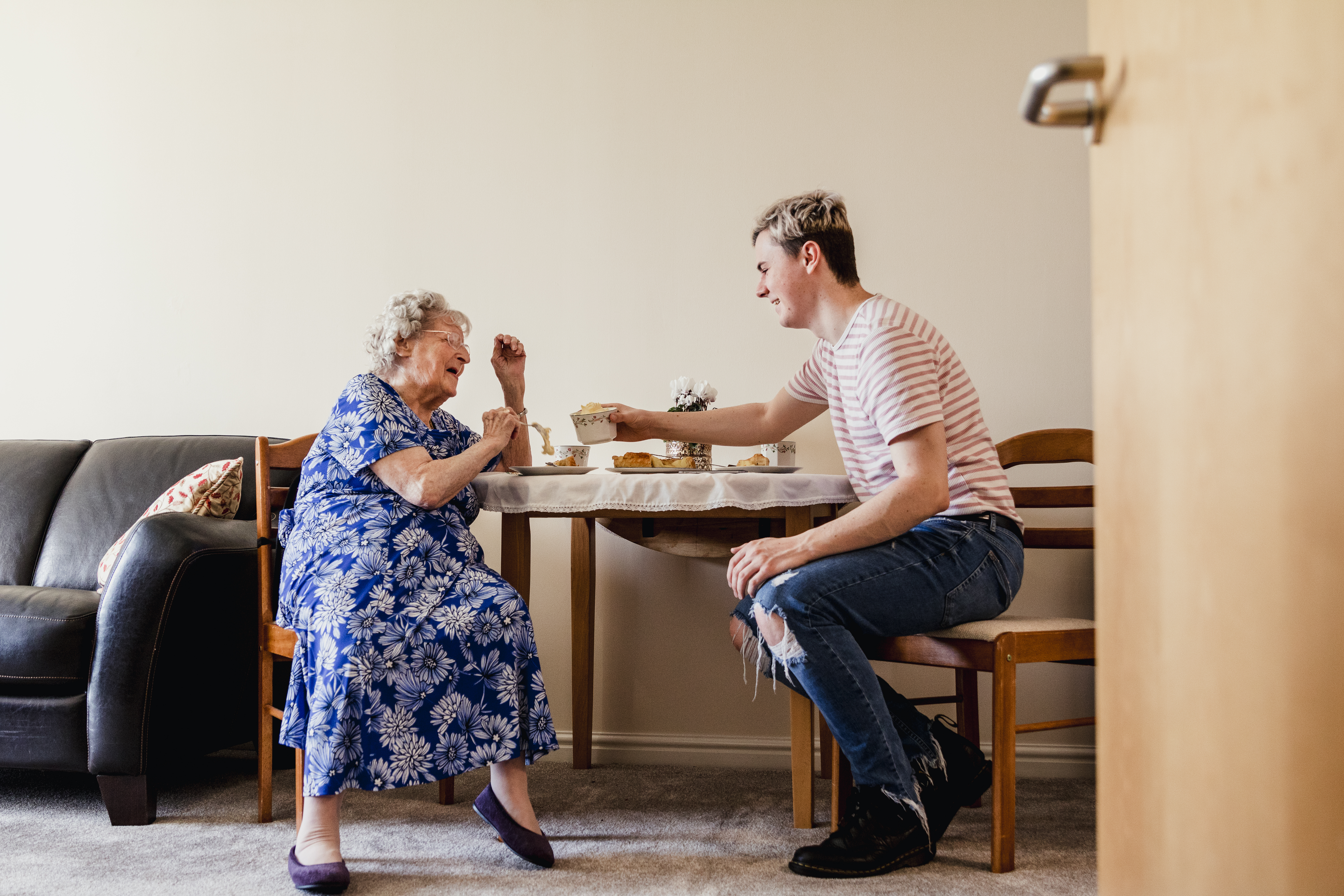Canada’s Young Caregivers

Providing care to a family member can be a difficult and demanding role. Many adults who find themselves in this position struggle to balance caregiving with other responsibilities, and to cope with the stress, mental health challenges and financial strain of being a caregiver. It’s a tough job – even for those who also find it rewarding to support a loved one in their time of need.
What many people don’t realize, however, is that not all caregivers are adults. In many cases, they’re children or youth who provide some kind of care for a parent, sibling, grandparent or other family member. According to data collected by Statistics Canada for the 2012 General Social Survey (GSS) on Caregiving and Care Receiving, an estimated 1.9 million young people aged 15 to 29 were providing care to a family member (usually a grandparent or parent) or friend with a long-term illness, a disability or age-related health problems. (The GSS did not include caregivers younger than 15.)
What kinds of care do young caregivers provide?
Similar to adult caregivers, young people help with household work (such as meal preparation, cleaning and laundry), transportation, home maintenance and personal care. Less commonly, young caregivers help with medical treatments, appointment scheduling and coordination, and managing finances. The intensity of care varied widely. Most young caregivers devoted either “one hour or less” (28%) or “two to four hours” (32%) per week to caregiving, but 5% provided 30 or more hours each week.
What is the impact on young caregivers?
One in five young caregivers who are enrolled in school reported that caregiving has had an impact on their studies (for example, missing classes, not meeting deadlines and having less study time). This was especially pronounced for young caregivers who provided 10 or more hours of care weekly. Young caregivers who also had paid employment reported that providing care also affected job performance (such as arriving late or having to leave work early or take time off).
The survey found that caregiving also exacted an emotional, mental and physical toll on many young people, causing feelings of worry, anxiety and fatigue.
Other research has found that young caregivers may also experience social isolation, anger, loneliness and grief. As a result of their caregiving responsibilities, they often have less time to socialize or participate in extracurricular activities.
Who is helping young caregivers?
Young caregivers need greater support, but the issue is complex, awareness about it is relatively low, and resources remain limited.
In Ontario, a few non-profit organizations offer much-needed resources:
- In Toronto, The Young Carers Program offers a support program for kids aged 5 to 18 who care for “a parent, grandparent, sibling or relative with a chronic or life threatening illness, disability, addiction, mental illness, or language barrier.”
- In Niagara and Haldimond-Norfolk, the Young Carers Initiative Powerhouse Project supports young carers and their families with weekly programming, life skills courses, educational workshops and more.
- Young Carers Project, based in Waterloo, has created free downloadable guides in English, French and Spanish for young carers.
- The Change Foundation has created a list of Ontario programs and services that support young carers.
- In Mississauga, Heart House Hospice has a special program, H.U.U.G. (Help Us Understand Grief) for young people who are “living with the dying or death of a family member.”
Young caregivers can also seek support through organizations that focus on specific health conditions, such as the Alzheimer Society of Canada and the Canadian Cancer Society, or through a family doctor, social worker or guidance counsellor.
If you are a young carer or a family caregiver, find some time this summer to focus on yourself. You deserve an extra hand or time for self-care. Bayshore Home Health offers respite care and home health services that are individualized and designed to work for you and the person you are caring for. Contact us at 1-877-289-3997 for details.
